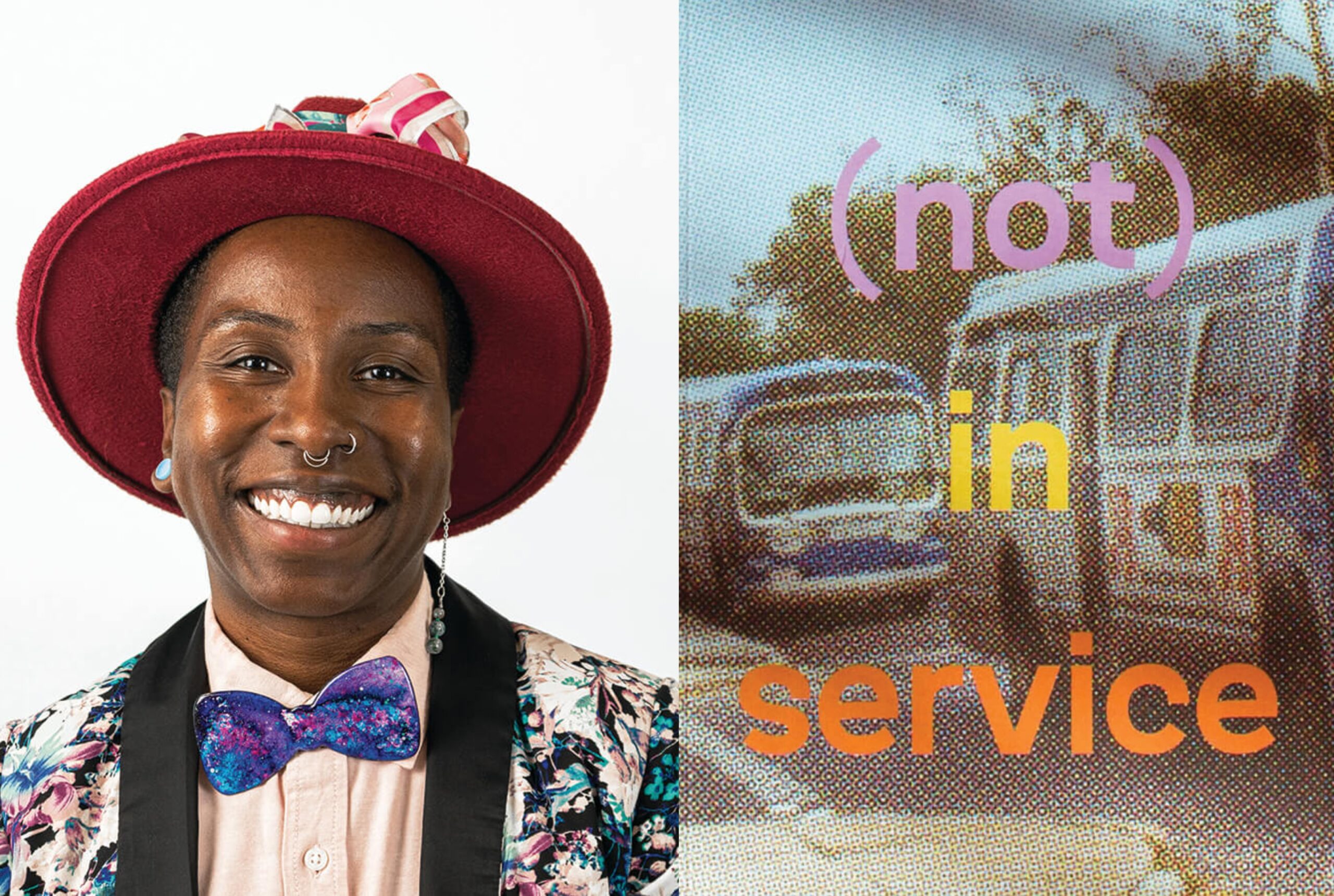Arts & Culture
Unique Robinson’s New Book Was Inspired by Being “In Transit”—Literally and Figuratively
New poetry collection, '(Not) In Service,' sheds light on Robinson's experiences relying on Baltimore's public transportation, while also navigating love, work, identity, and her place in the world.

For the first 34 years of her life, artist and poet Unique Mical Robinson didn’t have a car, so she relied on the city and state’s public transit. The at-times unpredictable system of buses, light rails, and subway trains served as a lifeline for Robinson, who grew up in both the Lexington Terrace and Park Heights neighborhoods.
Now, that experience is the inspiration for a new collection of poetry, (Not) In Service, which was written between 2017 and 2022, a time when Robinson was “in transit,” both literally and within herself as a queer artist navigating love, work, identity, and her place in the world.
The collection, featuring dozens of poems and personal photographs across 80 pages, is published by the Maryland-based Homie House Press. This is Robinson’s second book of poetry and it reads like a coming-of-age chronicle, as she reflects on her recovery and sobriety, and emerges, as she says, “more grown and more evolved.”
And the book is just one of the many ways in which Robinson has used her own life to connect with her community. The Grit Fund winner is also a rapper (under the name kLefta*maniak), an Arts Every Day teaching artist for Baltimore City Public School students, and the director of the Maryland Institute College of Art’s MFA in Community Arts Program. (She was also the cover story of last year’s GameChangers magazine.)
How did you come up with the idea for (Not) In Service?
I spent 34 years of my life riding public transit in Baltimore and other cities. It’d become a way of life, not by choice, but because I didn’t learn how to drive until I was 34, when my grandmother gifted her car to me. Truth is, there is still shame attached to riding public transit, especially for those of us growing up in poverty. I wanted to peel back these layers and own that experience, as well as give ground-level witness to the sights, sounds, and people of Baltimore that are often unseen.
How would you describe Baltimore’s public transportation?
Our public transit is nowhere near as efficient as New York’s or Chicago’s or even D.C.’s. Baltimore, pretty obviously, has gotten that scrap end of the deal. When the transit system is on time, we’re excited, because it doesn’t happen often. One thing I will say is that it’s affordable. You can get an all-day pass for under five bucks.
Your book is a love letter to the city of Baltimore, featuring moments of both frustration and appreciation. What else are the poems trying to convey?
As someone who was directly impacted by the oppression that Black people experience in Baltimore—who are often relegated to lower middle-class or working-class lives—a lot of my poems are critiques of the Baltimore system.
You’ll hear some people just trash Baltimore. For me, it’s never that. I always say it’s from a place of love. I want to see us be better, right? So in a way, this book of poems is a cry for the transit system to be better for the city, to be better for us, to be visible in many ways…I also see it as an advocacy tool. [I hope this book can] bring attention to a deeper need in the community.
Tell me more about what you were going through personally when writing these poems.
It feels like Mary J. Blige’s My Life album. People listen to that album because they feel what Mary was going through. It’s the blues. It’s joy. It’s happiness. It’s struggles. It’s our humanity in many ways. It’s that transition from your 20s to your 30s that is, indeed, an arduous one, which we don’t talk enough about, but is a cycle we all collectively experience.
I wanted to show the emotional turmoil I experienced during that time, but also to show how I’ve grown and evolved through those obstacles and made it to the other side, where I am thriving. So much of the internal pain I endured has fallen away and made room for so much more confidence and faith to take its place, reminding me of the adventure of life, and not to get stuck in suffering.
Your mom is a big supporter of your work. What did she say about the book?
She loves it. She thinks I’m a queen. She thinks it’s vibrant. She thinks it’s colorful. She’s amazing. I get all of my colorfulness from her…Since [I was a kid], she’s encouraged me to write and to be an artist, and even to leave Baltimore, to know that my dreams don’t need to be restricted. She encouraged me to be a weirdo, to dare to be different, to embrace my oddities, regardless of what anyone else thinks.